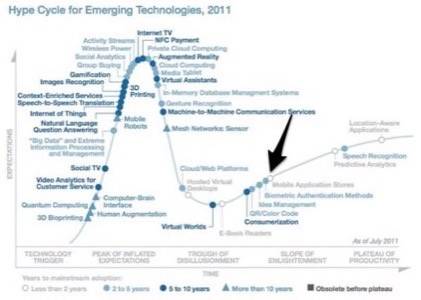This week, Nokia’s North American president Chris Weber went on a bit of a press tour to tout the upcoming Nokia Windows Phone 7 release. He told AllThingsD that the much-anticipated Nokia N9, based on MeeGo, will probably never reach U.S. shores and that Symbian would get phased out of the entire North American market.

No U.S. denizens are going to miss Symbian. The lack of traction by Nokia’s smartphone system in the U.S. doomed it, with iOS and Android the final nails in the coffin. Yet, in a stop at VentureBeat, Weber said that the reliance of Android and iOS on the native app is “outdated.” Weber was not specifically talking about HTML5 mobile Web applications but rather the “hubs and tiles” theme of Windows Phone 7. Later in the week, Amazon released its popular Kindle application to the mobile browser (Safari on iOS for now) with the HTML5 Kindle Cloud Reader, avoiding the draconian rules of Apple’s App Store. Perhaps there is a trend here. Between the Windows Phone approach and the supposed coming wave of HTML5 web-based apps, is the native application soon to be “outdated?” That is the topic of this week’s ReadWriteMobile poll.
The excellent developers at Pinch/Zoom know a thing or two about native apps and HTML5 deployment. Brian Fling posted an “Anatomy of HTML5” article on the company’s blog earlier this week that shows that, while HTML5 is powerful, it is also difficult to deal with. The average app developer may like the idea of HTML5, but it is much easier to build native apps for the various mobile platforms. In the near future, it will take big tech companies with a plethora of developers, like Amazon or Facebook, to come out with dynamic HTML5 mobile apps for the masses.
On Wednesday, research firm Gartner came out with its “Hype Circle for Emerging Technologies” for 2011 that shows the path of development and mainstream adoption for bleeding edge tech. While HTML5 was not mentioned specifically, “mobile application stores” are well past the peak of hype, through the “trough of disillusionment” and well on their way up the “slope of entitlement” to the “plateau of productivity.” Gartner is essentially saying that mobile app stores are here, established and soon to be the norm when it comes to mobile software deployment.

Yet, there is that big Amazon stick in the mud. The Amazon Cloud Reader is, at its core, a Web-app that can work offline. This, as some have pointed out, is a game-changer not just for mobile, but for how the entire Web operates. It may be a sign of the future, but does it make the app ecosystem “outdated?”
Vote in the poll and let us know your thoughts in the comments. How long do you envision the native-app model to be the dominant form of mobile software?

















